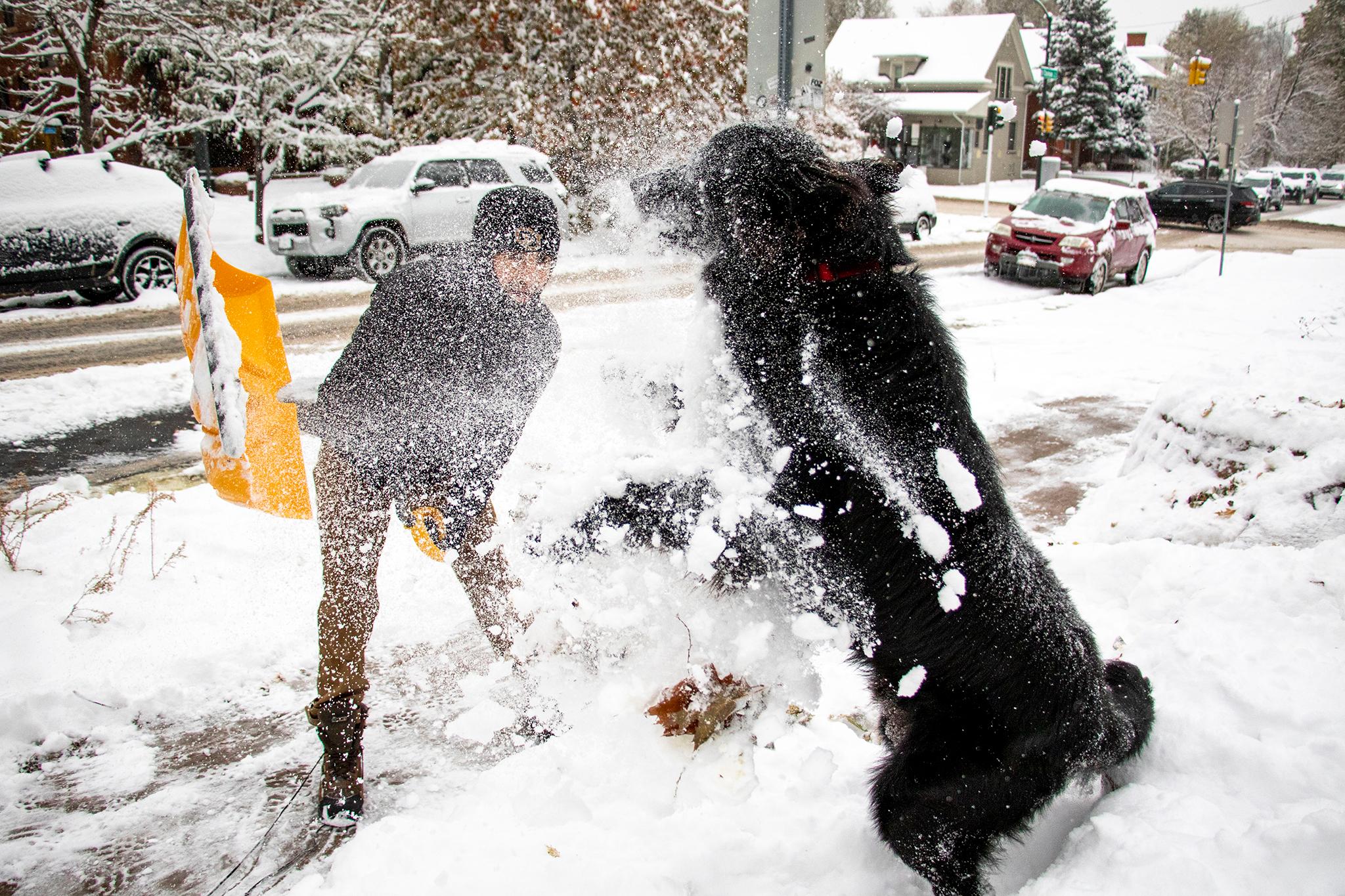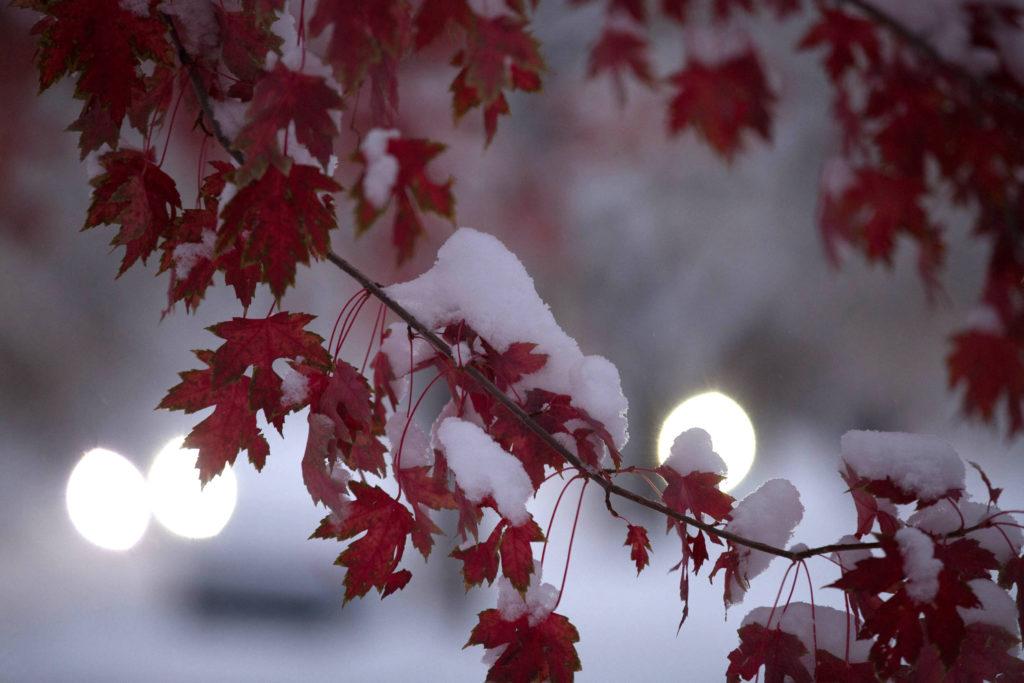
Updated at 4:52 p.m.
Snow around metro Denver will clear up Monday night just in time for a second-round of snow on Tuesday.
Most of the snow for Monday has already passed. Denver saw nearly 7 inches of snow fall in places. At Denver International Airport, nearly 4 inches had fallen overnight, leading to flight delays and some cancellations.
National Weather Service Meteorologist Kari Bowen said a lot of areas over the mountains and the Denver metro area saw clearing skies Monday afternoon.
In Boulder, more than 4,000 customers were without power at midday Monday. In metro Denver, the outages were fewer: Only about 200 customers were affected. By the afternoon, only 73 people were still out of power in Boulder and 47 in Denver.
Bowen said the eastern plains may experience continued light snow throughout Monday into the morning.
For Denver, there likely will not be any measurable snow overnight, but temperatures will be cold. By Tuesday morning, another round of snow will likely come and continue into midday Wednesday. The National Weather service says between 8 and 12 new inches of snow could fall in metro Denver.

Farther east in Colorado — nearer the Nebraska and Kansas borders, snow totals on Tuesday could be less — likely 6 to 8 inches.
Over higher terrain mountain valleys, Bowen expects 4 to 8 inches to fall Tuesday. There isn’t a lot of moisture in the area which is why people who live in the area will get less snow.
“Especially during those morning commute hours, we just really want people to take their time,” Bowen said. “If you’re able to work from home, do that. If you can go in a little bit late, do that. Give yourself that extra time.”
The snow is not all bad news. Meteorologist Joel Gratz said the state could use the precipitation, not just for skiers and snowboarders, but also to start helping get water supplies up early in the season.
"Even though we're early in the season, every flake helps," Gratz said.
"The last couple of storms we've had have benefited the northern two-thirds or so of Colorado," he said. "These areas are anywhere from 200 to 300 percent of average snow pack. Now, those numbers sound amazing, but we are very early in the season."
It's not the same story in southwestern Colorado, Gratz said. There, snow packs are only 40 to 90 percent of average.
"And that sounds bad, but again we're very early season, and one storm can change all of that," he said.









